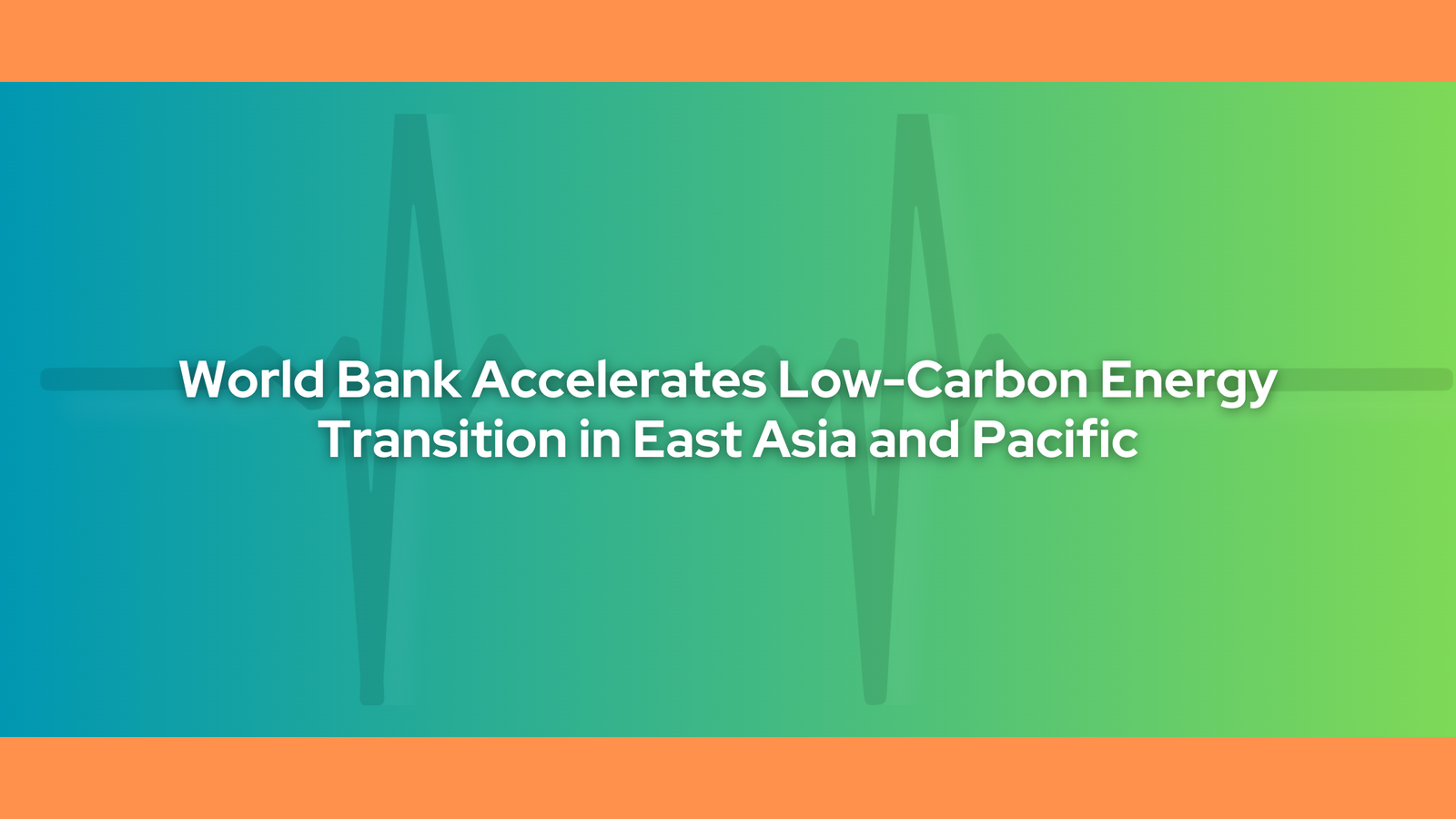
East Asia and the Pacific are home to many nations facing severe risks due to the devastating impacts of climate change. This includes rising sea levels, frequent extreme weather events, and increasingly unpredictable temperature fluctuations. With this, there’s an urgency for a low-carbon energy transition, especially since the region’s greenhouse gas emissions are particularly high.
The World Bank announced on September 24, 2024, a major initiative to accelerate the low-carbon energy transition in East Asia and the Pacific. This effort aligns with the bank’s broader commitment to addressing climate resilience and sustainable development, especially in regions most vulnerable to the effects of climate change.
The $2.5 billion program will assist developing countries in the area in reducing carbon intensity and meeting their development objectives. In addition to giving over 20 million people new or better access to clean electricity, the Accelerating Sustainable Energy Transition Program will help reduce greenhouse gas emissions by 60 million tons during its lifetime. An additional 2.5 gigawatts of renewable energy capacity—more than 1,000 wind turbines or 50 utility-scale solar farms—will be added by the program.
This initiative also aligns with global climate goals, particularly the Paris Agreement. This legally binding climate change accord emphasizes the need for coordinated international action to limit global temperature increases to 1.5°C. To prevent global warming to that degree, greenhouse gas emissions must peak no later than 2025 and then decrease by 43% by 2030.

The rapid expansion of the region has led to an increase in emissions. Emissions from East Asia make up more than one-third of the world’s total. To meet the goals for global climate mitigation, this region must reduce its carbon intensity of expansion. Several national governments have established challenging goals to cut emissions and strengthen their ability to withstand climate change.
Aside from reducing emissions, this low-carbon energy transition program can also aid in creating more resilient economies. East Asian and Pacific countries may foster economic stability, generate employment opportunities, and lessen their susceptibility to future climate shocks by allocating resources towards climate-friendly technologies and implementing sustainable procurement procedures.
Manuela V. Ferro, World Bank vice president for East Asia and the Pacific, acknowledged how critical this transition is for the region. Ferro added that this initiative is a key component of the World Bank’s commitment to mitigate climate change. “Other development partners are expected to join this platform for financing and knowledge to scale up impact,” she said.

To assist nations in embracing clean energy, scaling up renewable technology, improving transmission infrastructure, promoting regional low-carbon power trade, and reducing the risk associated with private investments through innovative financing, the new program makes use of the experience of the World Bank Group and its partners.
During the first phase, Papua New Guinea and the Marshall Islands will have better access to and dependability on renewable energy thanks to $260 million in grants from the World Bank. Meanwhile, a $5 million award, managed by the ASEAN Centre for Energy, will support the scale-up of renewable energy in ASEAN and cross-border electricity trade. Following the World Bank’s global initiatives to increase energy access and hasten the low-carbon transition, future stages will support Cambodia, Malaysia, Indonesia, and Mongolia.